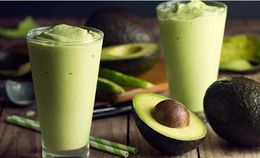It’s Fall-back time again and all I can hear inside my mind is Cher singing “If I Could Turn Back Time.” What an interesting concept…I mean, who can really change the time forward or back? Yet twice a year, that is what happens for nearly two billion people worldwide.
Advocates for Daylight Saving Time say DST saves on energy consumption, is good for us physically and psychologically, reduces traffic mishaps, reduces crime and is good for business. Opponents say just the opposite, claiming there are no real energy savings, it is economically disruptive and that DST is not good for our health.
I won’t debate the merits of either side, but based upon its history, DST seems to be an arbitrary construct at best. What I will comment on are the physically challenging effects that DST can have on our internal 24-hour body clock and our Circadian rhythms.
According to the National Institute of General Medical Sciences (NIGMS), animals and several other organisms have natural, internal timing mechanisms (composed of specific molecular proteins) that interact with the cells of nearly every tissue and organ of the body. Our biological clocks produce Circadian rhythms and regulate their timing. Circadian rhythms are the physical, mental, and behavioral changes that follow a daily pattern.
Our internal clock and associated Circadian rhythms regulate our metabolism, our heart rate, body temperature, hormonal function, and sleep. These rhythms respond to external environmental cues such as light, darkness, and temperature. They are also affected by travel across time zones - you might know it as Jet Lag.
Disruptions to our Circadian rhythms have been linked to obesity, depression, diabetes, heart problems, and sleep disorders. Interestingly, just a one hour mismatch can be enough to produce physical discomforts!
Who knows if the Daylight Saving Time argument will ever reach a clear conclusion. Here are a few safe and non-toxic tips to help you manage any ill effects from DST (or jet lag) in the meantime:
- Be sure to get a good dose of sunlight.
- There are plenty of herbs (adaptogens) that help regulate the body’s attempts to balance and there is something so comforting from sipping a cup of hot tea. There are many commercial blends available. I like the blends that contain American or Asian Ginseng, Ashwagandha, Astragalus, Eleuthero and/or Holy Basil.
- The art of Jin Shin Jyutsu suggests gently embrace each finger for a minute or so as you travel through time zones. Holding our fingers is always a great general body rhythm harmonizer.
- It is always a good idea to add an additional dose of Redox signaling molecules whatever additional stress your body may be experiencing! Message me to learn more.
https://www.nigms.nih.gov/education/Documents/CircadianRhythms.pdf





















